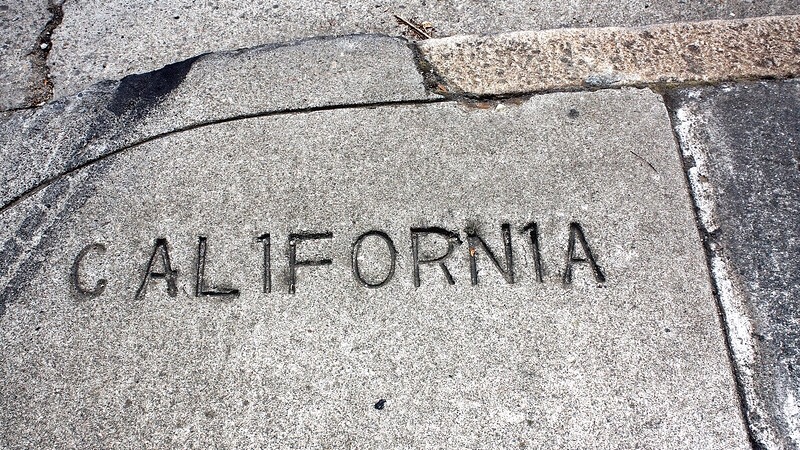I am doing NaBloPoMo this month. 30 blog posts in 30 days. Come join me. #nablopomo2023

photo credit: @benignohoyuela via Unsplash
I was thrilled to hear that you guys appreciated learning more about what I do as a geographer. It’s hard sometimes to understand what people do in their day jobs and I always love to find out more about that, too. While many of you said I did a good job explaining what I do, there were some follow-up questions that I thought I’d address here collectively. I hope this post will answer your questions.
You mentioned that some of the data will be gathered by airplanes. I wonder, are those special airplanes, or is the data gathered through commercial flights? And do you have to pay the airlines for that? (Tobia)
Data is NOT gathered on commercial flights. Flights have to adhere to certain flight routes and elevations to collect consistent data. There are programs that pay for the data collection or sometimes projects come up with the money themselves.
In the case of a shutdown, do you still get paid? Would your salary stop and then be made up later or are you out of pocket for shutdown time? (Birchie)
This is a good question and not one that is easy to answer. I’ll try to explain. Since I work for the government, you’d assume that I get furloughed during a shutdown (which has happened in the past). We had to stop working and our salary stopped for the duration of the shutdown, but we were retroactively paid back when a budget was passed. This sounds “nice” as we technically didn’t lose our salary, but not knowing when we would get back to work and get paid was very stressful.
However, my office is in a special situation. Despite being federal employees, about 80% of project funds in our office don’t come from Congress but from local and state cooperators. During previous shutdowns, we weren’t allowed to work although our funding was NOT tied to the congressional budget. That was unfair to our cooperators as they were basically funding the time we were sitting at home without producing any work. So, in recent years, our office had a partial exempt status and we were allowed to work (and get paid on time) during a shutdown on projects that were NOT funded by Congress. (This is the simplified version. It is a little bit more complicated like that.)
How did you get interested in Geography? Did you study that in college? (Coco, Jenny) Were you always interested in Geography or did you happen to fall into it and find your vocation? (Melissa)
I think I was always interested in Geography. I remember that I loved looking at the globe at my grandparents’ house and that I loved looking at maps at a very young age. What solidified this interest was my geography teacher in middle/high school. She was knowledgeable and very enthusiastic and just made me hang on her every word.
Geography was my favorite subject in school (besides sports). We had to pick two “Leistungskurse” (advanced courses) for the last three years before the Abitur (high school graduation) and I chose Geography and English. I then went on to study Geography, English, and Physical Education in college.
I originally studied to become a teacher, but when it became clear that this was not going to be my path in life, I knew that I wanted to go into science and work as a geographer.
What do you do with all of this data? How is it used? (Stephany) With whom do you share this information, and then how is it used to monitor and/or change things? And, what is the goal – reducing environmental impact? Improving how we respond to issues caused by water? (Anne)
Your guesses are pretty much spot on. We collect, monitor, analyze, and provide a scientific understanding of natural resource conditions, issues, and problems. We share these data and results with our cooperators (who give us the money to undertake certain studies). Those can be private entities, but more often it’s local and state partners, or other agencies who ask us to study and investigate specific problems.
The cooperators then use the information to gather insights on specific environmental problems and use it for mitigation, to reduce environmental impact, or to monitor how well certain mitigation strategies are working. Some projects span multiple years or even decades.
I should note that our agency is only allowed to provide unbiased, objective scientific information. We don’t make the decisions based on these findings, or even suggest what should be done with the scientific insights that we gained. We have no policy-making powers. Those lie in the hands of local and state policymakers.



Steve
November 27, 2023 at 1:58 pmThat was fascinating to read. A whole field of work I was only minimally familiar with before, but is important.
coco
November 27, 2023 at 1:59 pmthanks for answering my question. It’s great to know early on what you are passionate about. I was very late into that. :)
Beckett @ Birchwood Pie
November 27, 2023 at 5:19 pmWow! This is fascinating.
I know from experience on the other end of the pay desk that late and missed paychecks cause a lot of stress, so I can’t imagine what it is like for, you know, ALL FEDERAL EMPLOYEES, to have their pay on hold. Or what it’s like for the payroll people to catch up because yikes!
Nicole MacPherson
November 28, 2023 at 5:14 amSo interesting, San! Thanks for this!
NGS
November 28, 2023 at 7:41 amOh, yours is the type of work that the shutdown can seriously mess with data collection!! How terrifying. This waiting game must not feel very good. Fingers crossed they figure it out SOON.
Lisa's Yarns
November 28, 2023 at 9:59 amThe government funding aspect sounds so confusing! But I am glad you can continue to get paid and work through a shutdown since there’s a non-zero risk of shutdowns thanks to our dysfunctional government.
I was not great at nor interested in geography. Phil was and Paul seems to be. We have a US and world map on the wall of our basement. He loves finding different states on the US map. So maybe he’ll have the interest his dad did or it will be fostered. Math was always my favorite subject from a young age! I don’t think that was necessarily fostered, though. It wasn’t not fostered but I think I came by it naturally.
Tobia | craftaliciousme
November 29, 2023 at 7:38 amThank you so much for going more into depth. So interesting. And so many questions aI didn’t know I needed the answer for.
Stephany
December 1, 2023 at 4:01 pmThanks for answering our follow-up questions! Your job is FASCINATING and it must be so great to know what you’re doing is making an impact, even if you can’t see what that is right away.
Anne
December 3, 2023 at 2:34 pmDo people actually think your data are subjective? (I mean, I guess I can see people misunderstanding, but … are there people who think you have some nefarious purpose? Yeeks…)
I somehow managed to avoid shutdowns during my brief time as a federal employee. It was an interesting time. I’m trying to think of how to tell the story on my blog without the details that would, essentially, out me… I do not envy you, having to navigate the current state of the federal gov’t.